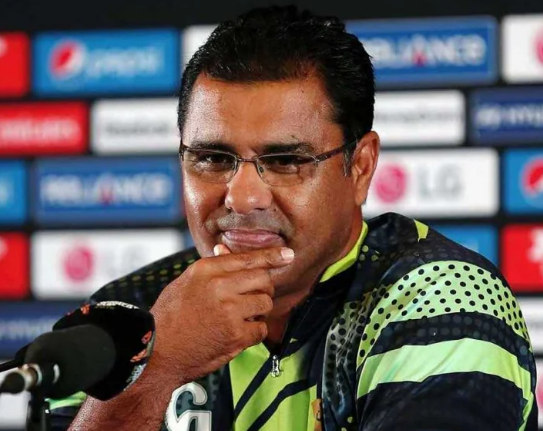Basit Ali’s Perspective on Jasprit Bumrah and Captaincy
Former Pakistani batter Basit Ali has expressed his views on the recent discussions surrounding Indian pacer Jasprit Bumrah and his potential for captaincy. According to Basit, Bumrah should not be considering a leadership role and should instead focus solely on his primary strength—bowling.1
Table of Contents
Jasprit Bumrah’s Take on Fast Bowlers as Captains
- Jasprit Bumrah, who is widely regarded as one of the best fast bowlers in the world, recently shared his thoughts on the subject of fast bowlers taking on captaincy roles.
- Speaking on the Indian Express’ show Express Adda last month, Bumrah argued that fast bowlers have the qualities necessary to be successful captains.
- He pointed out that it is often unfair that pacers are overlooked for leadership roles, citing the examples of Kapil Dev and Imran Khan—both legendary fast bowlers who led their respective teams to World Cup victories.
- Bumrah’s comments were part of a broader conversation about the evolving roles of cricketers in leadership positions.
- His views sparked a debate on whether fast bowlers can effectively lead teams, a role traditionally associated with batters or all-rounders.
Basit Ali’s Contrasting Opinion
However, Basit Ali, a former Pakistani cricketer known for his straightforward opinions, does not share Bumrah’s enthusiasm for the idea of a fast bowler taking on the captaincy.
In his view, Bumrah should concentrate on what he does best—bowling. Basit believes that the added responsibilities of captaincy could potentially distract Bumrah from his primary role as India’s pace spearhead.
The Debate on Fast Bowlers as Captains
The debate over whether fast bowlers can be successful captains is not new. Historically, cricket teams have often preferred batters or all-rounders as captains, likely due to the belief that they are more involved in the game and can make better on-field decisions.
However, there have been successful fast-bowler captains, such as Kapil Dev and Imran Khan, who proved that pace bowlers can also lead their teams to glory.
Also Read: Nick Hockley Five-Year Journey as Cricket Australia CEO Comes to an End
The Challenges of Leadership for Fast Bowlers: Basit Ali’s Perspective
In the world of cricket, leadership roles such as captaincy and coaching have traditionally been dominated by batters or all-rounders. Fast bowlers, while often seen as crucial members of a team, are rarely considered for these positions.2
View this post on Instagram
Basit Ali, a former Pakistani cricketer, has weighed in on this topic, stating that very few fast bowlers possess the qualities needed to succeed as a coach or captain. While there are exceptions, such as Australia’s Pat Cummins, Basit Ali argues that the rigors of fast bowling make it difficult for most pacers to excel in leadership roles.
The Unique Demands of Fast Bowling
Fast bowling is one of the most physically demanding roles in cricket. It requires a combination of speed, stamina, precision, and mental toughness.

The physical strain of consistently delivering high-speed deliveries, coupled with the need to maintain focus over long periods, makes fast bowling a challenging discipline. Given these demands, Basit Ali suggests that fast bowlers may struggle to balance their primary role with the additional responsibilities of leadership.
Pat Cummins: An Exception to the Rule
Despite the general challenges faced by fast bowlers in leadership roles, Pat Cummins, the Australian fast bowler, has emerged as a notable exception.
Cummins has enjoyed a successful tenure as Australia’s Test captain, leading his team with distinction and earning praise for his tactical acumen and calm demeanor. His success as captain has reignited the debate about whether more fast bowlers should be considered for leadership positions.
The Case of Jasprit Bumrah
- Jasprit Bumrah, one of India’s premier fast bowlers, has also been part of the conversation regarding fast bowlers in leadership roles.
- Bumrah was a key figure in India’s 2024 T20 World Cup triumph, where he was named Player of the Tournament after taking 15 wickets in eight innings at an outstanding economy rate of 4.17. His performance was instrumental in India’s success, and it highlighted his importance to the team.
- Given Bumrah’s achievements, some have speculated about his potential as a captain.
- Bumrah himself has spoken about how fast bowlers can make great captains, citing the examples of Kapil Dev and Imran Khan, both of whom were successful fast-bowler captains who led their teams to World Cup victories.
- However, Basit Ali remains unconvinced, arguing that Bumrah should focus solely on his bowling rather than pursuing captaincy.
Basit Ali: A Profile of a Unique Cricketer and Coach
Basit Ali, born on December 13, 1970, in Karachi, Pakistan, is a former cricketer who made a name for himself in both Test and One Day International (ODI) cricket during the early 1990s. Known for his right-handed batting style, Basit Ali’s career, though short-lived, left an indelible mark on the cricketing world.
His journey from being a promising young cricketer to a respected coach is a testament to his deep understanding of the game.

Early Career and Rise to International Cricket
Basit Ali’s cricketing journey began in the domestic circuits of Pakistan, where he quickly gained a reputation as a talented batsman with a solid technique. His consistent performances at the domestic level caught the attention of national selectors, leading to his inclusion in the Pakistan national team in 1993.
Happy Birthday Basit Ali🎂
In 69 international matches, the right-handed batter scored 2,123 runs. He is presently the head coach of the Sindh Cricket Association. pic.twitter.com/qmmh9j0Z5f
— Pakistan Cricket (@TheRealPCB) December 13, 2021
The Uncommon Statistic: Higher ODI Batting Average
One of the most intriguing aspects of Basit Ali’s career is his higher batting average in ODIs compared to Tests—a rarity in the cricketing world. In the 50 ODIs he played for Pakistan, Basit scored 1,207 runs at an impressive average of 34.48, including one century and six fifties.

His ability to adapt to the limited-overs format and deliver consistently made him a valuable asset to the Pakistani ODI team.
Challenges and Criticisms
- Despite his talents, Basit Ali’s international career was not without challenges. He faced stiff competition for a spot in a Pakistan team that boasted a strong batting lineup, including legends like Inzamam-ul-Haq and Javed Miandad.
- This competition, coupled with a few inconsistent performances, led to his early exit from the international scene by 1996.
- Additionally, Basit was sometimes criticized for his unorthodox batting style, which, while effective in ODIs, did not always translate well into the longer format of the game.
- .Critics pointed out that his aggressive approach, while beneficial in one-day matches, could lead to his downfall in Tests, where patience and long innings are often required.
Also Read: Haris Rauf (Cricketer) Bio, Age, Career, Net Worth, Personal Life And More
Rise to Glory: Basit Ali’s Iconic Innings at the 1993 Pepsi Champions Trophy Final
The 1993 Pepsi Champions Trophy final at Sharjah is etched in cricketing history as the stage for one of the most remarkable One Day International (ODI) innings ever played.
This match, featuring Pakistan against the formidable West Indies, showcased the extraordinary talent of Basit Ali, a cricketer whose performance under pressure defined his career and solidified his place in the annals of Pakistan cricket.
The Challenge at Hand
Pakistan found themselves in a precarious situation in the final, with their top order collapsing under the relentless attack of the West Indian bowlers. With the score at 87 for 3, the situation was dire.
The likes of Courtney Walsh and Curtly Ambrose, two of the most feared fast bowlers in the world, were making life difficult for the Pakistani batsmen. The pitch at Sharjah, known for assisting pace and bounce, further compounded the challenge.
Basit Ali’s Heroic Knock
What unfolded next was nothing short of a masterclass in batting. Basit Ali, displaying nerves of steel, took on the challenge head-on. His innings of 127 runs off just 79 balls was a blend of aggression, precision, and sheer determination.
Basit’s approach was fearless; he countered the fierce West Indian pace attack with an array of exquisite strokes, both off the front foot and the back foot.

The Turning Point
Basit Ali’s knock not only rescued Pakistan from a perilous position but also turned the tide of the match. His aggressive yet calculated batting allowed Pakistan to post a competitive total, giving their bowlers a target to defend.
The psychological impact of Basit’s innings on the West Indian bowlers cannot be overstated; it demoralized them and shifted the momentum in Pakistan’s favor.
Coaching Career: A Journey of Highs and Lows
After an illustrious yet relatively brief international playing career, Basit Ali transitioned into coaching, where he sought to impart his cricketing knowledge and experience to the next generation of Pakistani cricketers.
His coaching career, much like his playing days, was marked by moments of success as well as controversy, ultimately reflecting the complexities of the game and the challenges of leadership.
Head Coach of Pakistan A Team
Basit Ali’s first significant coaching role came when he was appointed as the head coach of the Pakistan A team. This position was crucial as it involved nurturing and developing the country’s upcoming cricketing talent.
The Pakistan A team serves as a feeder for the national side, meaning Basit’s role was instrumental in shaping the future stars of Pakistani cricket. Under his guidance, the team showed promise, and several players who trained under him went on to represent Pakistan at the international level.

Role with the Pakistan Women’s Team
In addition to his work with the Pakistan A team, Basit Ali also took on the responsibility of coaching the Pakistan women’s cricket team. This role was particularly challenging, given the relative lack of resources and support for women’s cricket in Pakistan at the time.
Despite these challenges, Basit worked diligently to improve the team’s performance, focusing on enhancing their skills and building a competitive team culture.
Leadership in Under-19 Cricket
- Basit Ali’s coaching journey also included a significant stint with the Pakistan Under-19 team. Serving as both head coach and chief selector, Basit played a pivotal role in identifying and grooming young talent.
- The Under-19 team is a critical part of Pakistan’s cricketing structure, often serving as the stepping stone to international cricket.
- Basit’s dual role allowed him to have a comprehensive influence on the selection and development of players, ensuring that the best talent was nurtured and prepared for the challenges of international cricket.
- During his time with the Under-19 team, Basit Ali was instrumental in developing several young cricketers who later became prominent figures in Pakistan cricket.
- His focus on discipline, technique, and mental toughness was evident in the way the team played under his guidance. The team’s performances in various tournaments improved, and Basit’s work was recognized by the Pakistan Cricket Board (PCB).
FAQ’S
1. Who is Basit Ali, and what is his concern regarding Jasprit Bumrah’s captaincy?
Ans: Basit Ali is a former Pakistani cricketer and commentator. He expressed concern that taking on the role of captain could distract Jasprit Bumrah from focusing on his primary strength—bowling, potentially affecting his performance.
2. Why does Basit Ali believe captaincy might distract Bumrah from his bowling?
Ans: Basit Ali believes that the added responsibilities of captaincy, such as strategizing and managing the team, could divert Bumrah’s attention from his bowling, leading to a potential dip in his effectiveness as a premier bowler.
3. Has Jasprit Bumrah taken on a captaincy role recently?
Ans: Jasprit Bumrah has been entrusted with captaincy roles in certain matches or series, often in the absence of regular team leaders. This has raised discussions about how it might influence his overall game, particularly his bowling.
4. How has Jasprit Bumrah performed under the captaincy so far?
Ans: Bumrah’s performance under captaincy has been generally positive, though opinions vary on whether it has impacted his bowling. Some believe he has handled the dual role well, while others share concerns similar to Basit Ali’s.
5. What do other cricket experts and fans think about Bumrah’s dual role as captain and bowler?
Ans: Opinions are divided. Some experts and fans appreciate Bumrah’s leadership skills and believe he can manage both roles effectively. Others, like Basit Ali, caution that captaincy might add unnecessary pressure and impact his bowling performance.
Read More: MLC 2024 Challenger: Corey Anderson’s (Cricketer) Unbelievable Catch Stuns Fans




